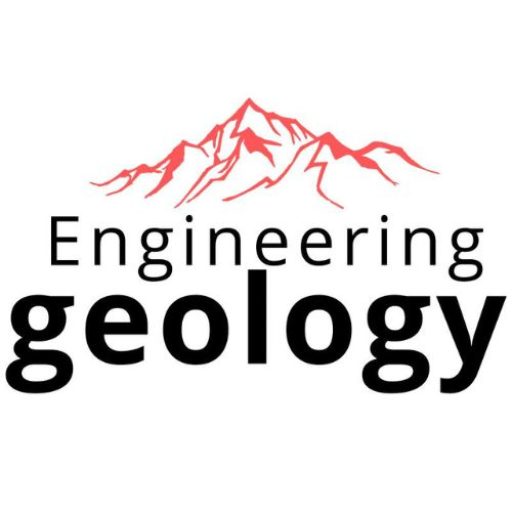Understanding the Role of a Geoscientist

In the realm of geology and engineering geology, the term “geoscientist” holds paramount significance. This comprehensive guide will delve into what a geoscientist is, their core responsibilities, essential skills, and offer insights into the average salary and job outlook for this intriguing profession. As we explore these facets, we’ll also incorporate relevant keywords to optimize this blog post for search engine visibility.

Table of Contents
- What is a Geoscientist?
- What Does a Geoscientist Do?
- Geoscientist Skills
- Average Salary for Geoscientists
- Job Outlook for Geoscientists
- Educational Requirements for Geoscientists
- Specializations in Geoscience
- Emerging Trends in Geoscience
- The Future of Geoscience
- Conclusion
1. What is a Geoscientist?
A geoscientist, often referred to as a geologist or earth scientist, is a professional who specializes in the study of the Earth, its structure, composition, and processes. Geoscientists employ a multidisciplinary approach, combining elements of geology, physics, chemistry, and biology to unravel the mysteries of our planet.
2. What Does a Geoscientist Do?
Geoscientists are tasked with a diverse range of responsibilities, all aimed at understanding and managing the Earth’s resources and environment. Their duties encompass:
2.1 Geological Surveys
Geoscientists conduct surveys to assess the Earth’s subsurface, mapping rock formations, mineral deposits, and groundwater resources.
2.2 Environmental Impact Assessment
They evaluate the environmental impact of construction projects, mining operations, and land use changes.
2.3 Natural Hazard Assessment
Geoscientists play a crucial role in assessing and mitigating natural hazards such as earthquakes, landslides, and volcanic eruptions.
2.4 Research and Data Analysis
They gather and analyze geological data to formulate theories and models that aid in understanding Earth’s past, present, and future.
2.5 Field Work and Site Investigations
Geoscientists frequently work in the field, collecting samples and conducting experiments to support their research.
3. Geoscientist Skills
To excel in the field of geoscience, professionals need to possess a diverse set of skills, including:
3.1 Analytical Skills
The ability to interpret complex geological data and draw meaningful conclusions is vital for geoscientists.
3.2 Problem-Solving
Geoscientists often face complex geological challenges that require innovative problem-solving.
3.3 Communication
Effective communication is key when conveying findings to colleagues, stakeholders, and the public.
3.4 Technical Proficiency
Proficiency in specialized software and equipment for data analysis and modeling is essential.
3.5 Fieldwork
A willingness to work in challenging outdoor environments is a fundamental aspect of a geoscientist’s skillset.
4. Average Salary for Geoscientists
A geoscientist’s salary varies depending on factors such as experience, location, and specialization. Here’s a glimpse of average annual salaries in different geoscience roles:
| Role | Average Salary (USD) |
|---|---|
| Geologist | $80,000 – $120,000 |
| Environmental Scientist | $50,000 – $90,000 |
| Seismologist | $90,000 – $140,000 |
| Petroleum Geologist | $100,000 – $150,000 |
Please note that these figures are approximate and can vary significantly.
5. Job Outlook for Geoscientists
The job outlook for geoscientists is influenced by global trends and economic factors. As of [2023], the demand for geoscientists is growing, with opportunities in various sectors, including:
- Mining and Resources: Geoscientists are in demand to locate and assess valuable mineral deposits and energy resources.
- Environmental Consulting: Environmental regulations are driving the need for geoscientists to assess and mitigate environmental impact.
- Government Agencies: Geoscientists are employed by government bodies for research and natural hazard assessment.
- Research and Academia: Opportunities exist for geoscientists in academia and research institutions.

6. Educational Requirements for Geoscientists
To embark on a career as a geoscientist, a solid educational foundation is crucial. Typically, the following educational path is pursued:
- Bachelor’s Degree: A bachelor’s degree in geology, earth sciences, or a related field is the starting point.
- Master’s Degree: Many geoscientists opt for a master’s degree to specialize further and enhance career prospects.
- Ph.D.: For those aspiring to conduct advanced research or teach at the university level, a Ph.D. may be pursued.
7. Specializations in Geoscience
Geoscience offers numerous specializations, allowing professionals to focus on specific areas of interest. Some prominent specializations include:
- Mineralogy: Studying minerals and their properties.
- Hydrogeology: Investigating groundwater and its movement.
- Volcanology: Analyzing volcanic activity and eruptions.
- Seismology: Studying earthquakes and seismic waves.
8. Emerging Trends in Geoscience
The field of geoscience is constantly evolving, with emerging trends such as:
- Geospatial Technology: The use of GIS (Geographic Information Systems) for advanced mapping and analysis.
- Climate Change Research: Geoscientists are increasingly involved in climate change studies and mitigation efforts.
- Remote Sensing: Utilizing satellite imagery and remote sensors for data collection.

9. The Future of Geoscience
The future of geoscience is promising, as it plays a vital role in addressing environmental challenges, resource management, and natural hazard prediction. Geoscientists will continue to be at the forefront of understanding and safeguarding our planet.
Conclusion
In summary, a geoscientist is a multidisciplinary expert who explores the Earth’s intricacies, employing a wide array of skills to contribute to our understanding of the planet. With a competitive salary range and a positive job outlook, geoscience offers a rewarding career path for those passionate about the Earth’s mysteries. As this field evolves, geoscientists will remain crucial in addressing the environmental and geological challenges that lie ahead. If you aspire to become a geoscientist, remember that a strong educational foundation, diverse skill set, and a passion for exploration are your keys to success in this dynamic profession.
